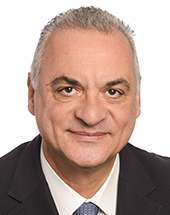
Choisissez la langue de votre document :
- bg - български
- es - español
- cs - čeština
- da - dansk
- de - Deutsch
- et - eesti keel
- el - ελληνικά
- en - English
- fr - français
- ga - Gaeilge
- hr - hrvatski
- it - italiano
- lv - latviešu valoda
- lt - lietuvių kalba
- hu - magyar
- mt - Malti
- nl - Nederlands
- pl - polski
- pt - português
- ro - română
- sk - slovenčina
- sl - slovenščina
- fi - suomi
- sv - svenska
|
| Posėdžio stenograma | |
| Trečiadienis, 2018 m. lapkričio 14 d. - Strasbūras | Atnaujinta informacija |
|
| Atnaujinta: 2019 m. balandžio 8 d. | Teisinė informacija - Privatumo politika |






































































